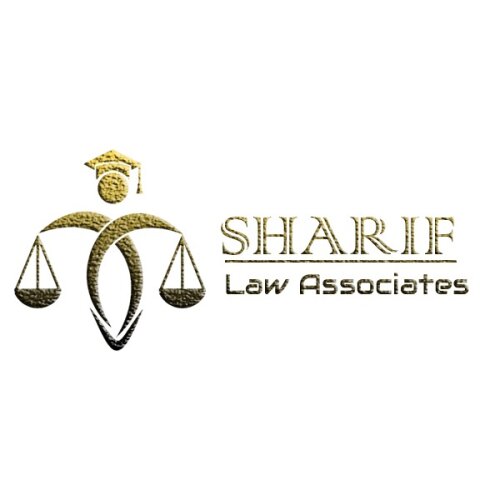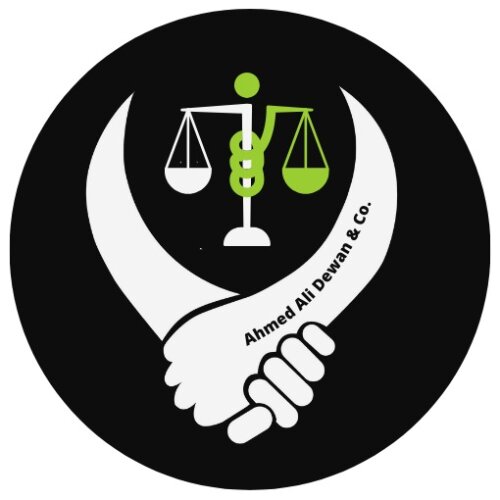Best Drug Crime Lawyers in Pakistan
Share your needs with us, get contacted by law firms.
Free. Takes 2 min.
Or refine your search by selecting a city:
List of the best lawyers in Pakistan
About Drug Crime Law in Pakistan
Drug crime in Pakistan is governed primarily by the Control of Narcotic Substances Act, 1997. The legislation is comprehensive, covering all aspects of narcotics control such as cultivation, production, possession, sale, purchase, trafficking, and use. The law is designed to prevent and control substance abuse and narcotics trafficking within the country. Due to its geographical location, Pakistan has faced challenges with drug trafficking, particularly involving opiates from neighboring Afghanistan.
Why You May Need a Lawyer
Individuals may require legal help for drug-related offenses for various reasons, including:
- Being charged with possession of illegal drugs
- Being accused of drug trafficking
- Dealing with cases of drug manufacturing or cultivation
- Seeking legal advice on drug rehabilitation and diversion programs
- Needing representation in court to challenge the evidence or charge
- Assistance with navigating complex legal procedures and bail applications
Local Laws Overview
The Control of Narcotic Substances Act, 1997 forms the backbone of drug crime law in Pakistan. Key aspects include:
- Possession: Illegal possession of narcotics is a serious offense; penalties vary based on the amount confiscated.
- Trafficking: Involvement in transporting or distributing illegal drugs leads to severe penalties, including lengthy prison sentences and fines.
- Cultivation: Illegally growing narcotic plants, like poppy and cannabis, can incur heavy fines and imprisonment.
- Rehabilitation: The law also features provisions to encourage the rehabilitation of drug addicts, offering alternatives to incarceration.
- Enforcement Agencies: Agencies like the Anti-Narcotics Force play a crucial role in enforcing drug laws.
Frequently Asked Questions
What constitutes illegal possession of drugs in Pakistan?
Illegal possession refers to having control over narcotics or psychotropic substances without legal authorization, such as a valid prescription or official permission for specific purposes.
What are the penalties for drug trafficking in Pakistan?
Penalties for drug trafficking can include long-term imprisonment, heavy fines, and in extreme cases, the death penalty, depending on the quantity and type of drug involved.
Is there any provision for bail in drug offense cases?
Yes, bail can be granted in drug cases, but it often depends on the severity of the offense, the quantity of the drug, and the specific circumstances of the case.
How can a lawyer assist in a drug-related case?
A lawyer can provide legal representation, help gather and present evidence, negotiate plea deals, and guide the defendant through complex legal procedures.
Can drug addiction lead to criminal charges?
Drug addiction alone is not a criminal offense, but actions such as possession or distribution resulting from addiction may lead to charges.
Are there rehabilitation options available instead of imprisonment?
Yes, Pakistan offers rehabilitation and treatment programs for drug addicts, which can sometimes be utilized as alternatives to incarceration.
What is the role of the Anti-Narcotics Force?
The Anti-Narcotics Force (ANF) is the primary agency responsible for enforcing Pakistan's drug laws, including preventing drug smuggling and trafficking.
Can a juvenile be charged with a drug crime?
Youths can be charged with drug offenses, but juvenile justice laws may apply, focusing more on rehabilitation than on punishment.
Are there any recent changes to drug laws in Pakistan?
Drug laws in Pakistan continue to evolve, with periodic amendments to strengthen control measures and adapt to emerging drug trends.
What should I do if I am accused of a drug offense?
It is crucial to seek immediate legal assistance, remain cooperative with authorities, and avoid making any self-incriminating statements.
Additional Resources
Those seeking help may find the following resources useful:
- The Anti-Narcotics Force (ANF) for drug law enforcement information
- The Ministry of Narcotics Control for policy guidance
- Local legal aid clinics that provide free or low-cost legal assistance
- Nongovernmental organizations like the Nai Zindagi Trust for rehabilitation support
Next Steps
If you require legal assistance with a drug-related offense in Pakistan, consider taking the following steps:
- Contact a lawyer experienced in criminal defense and drug crime cases.
- Gather any evidence or documentation related to your case.
- Stay informed about your legal rights and responsibilities.
- Prepare a list of questions and concerns to discuss with your lawyer.
- Cooperate with legal authorities while ensuring your rights are protected.
Lawzana helps you find the best lawyers and law firms in Pakistan through a curated and pre-screened list of qualified legal professionals. Our platform offers rankings and detailed profiles of attorneys and law firms, allowing you to compare based on practice areas, including Drug Crime, experience, and client feedback.
Each profile includes a description of the firm's areas of practice, client reviews, team members and partners, year of establishment, spoken languages, office locations, contact information, social media presence, and any published articles or resources. Most firms on our platform speak English and are experienced in both local and international legal matters.
Get a quote from top-rated law firms in Pakistan — quickly, securely, and without unnecessary hassle.
Disclaimer:
The information provided on this page is for general informational purposes only and does not constitute legal advice. While we strive to ensure the accuracy and relevance of the content, legal information may change over time, and interpretations of the law can vary. You should always consult with a qualified legal professional for advice specific to your situation.
We disclaim all liability for actions taken or not taken based on the content of this page. If you believe any information is incorrect or outdated, please contact us, and we will review and update it where appropriate.
Browse drug crime law firms by city in Pakistan
Refine your search by selecting a city.

















